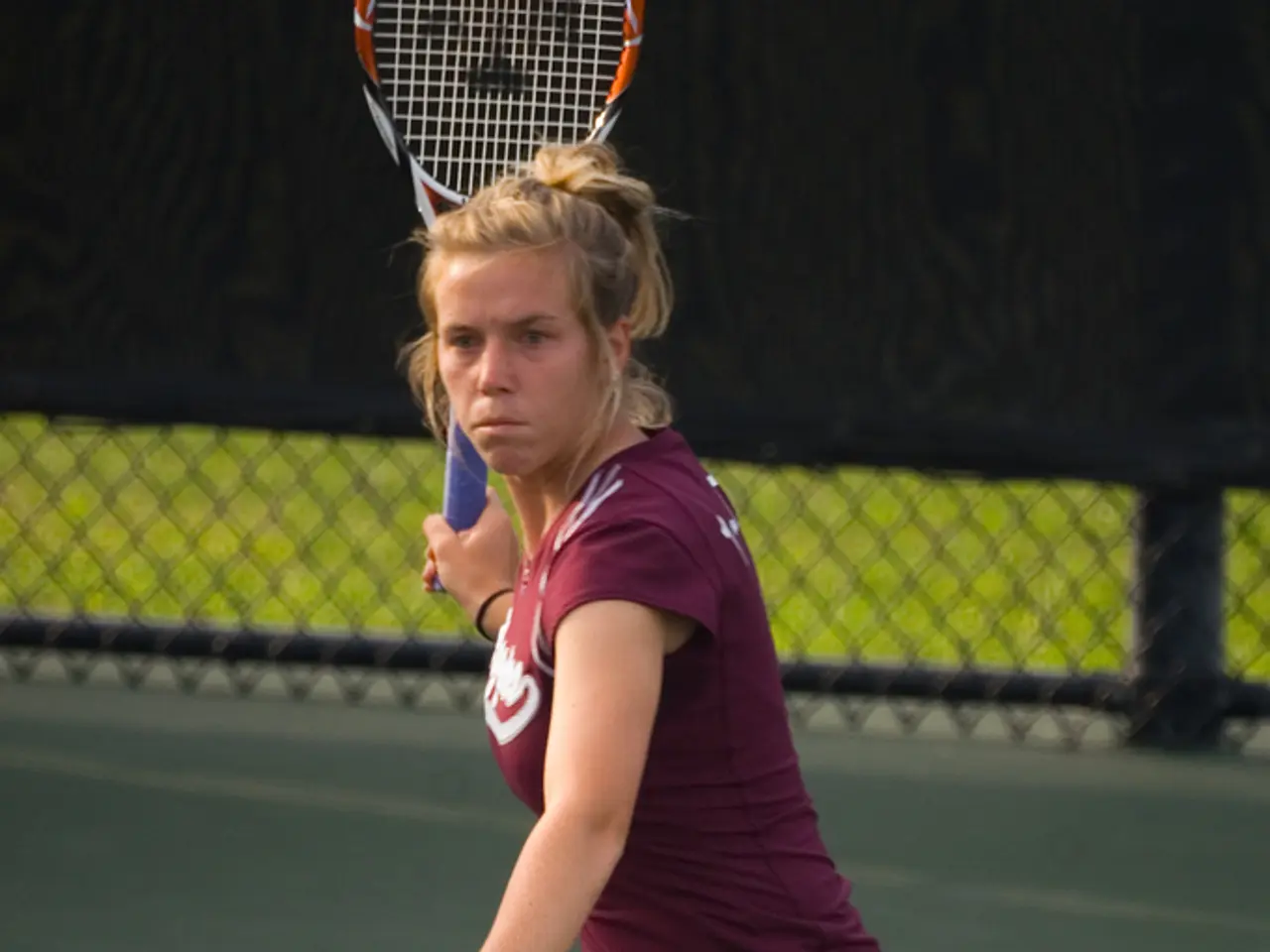Athletic support for fertility treatment is redefining the course of women's sports, asserts tennis champion Sloane Stephens.
Women's Tennis Takes a Lead in Fertility Support for Athletes
In a groundbreaking move, the Women's Tennis Association (WTA) has introduced a comprehensive fertility support initiative, fully funded by Saudi Arabia's Public Investment Fund (PIF). This landmark program, set to commence in May 2025, provides grants for egg and embryo freezing, In Vitro Fertilization (IVF) treatment, paid maternity and parental support, and ranking protection for players undergoing these procedures [1][2][3][5].
This initiative marks the first time in women's sports history that such extensive maternity benefits and fertility treatment grants have been provided to independent, self-employed athletes. As of now, women's tennis is the only female sport confirmed to have formally implemented initiatives supporting fertility treatments [1][3].
American tennis player Sloane Stephens, aged 30, has become a trailblazer in this area, having frozen her eggs twice. Stephens was not aware of any other tennis players who had frozen their eggs before her. She has since become a sounding board for other players regarding family planning and has advocated for greater support around this issue during her time on the WTA Players' Council [2].
Stephens' experiences with egg freezing have been mixed. Her first attempt was stressful, resulting in a 15-pound weight gain and an early return to competition. However, her second attempt was a more positive experience [6]. Stephens discussed her egg freezing experience with CNN Sports' Amanda Davies, shedding light on the challenges and benefits of this process for athletes [7].
Stephens believes that supporting mothers and mothers-to-be is "very much long overdue" in women's sports. She wishes she had frozen her eggs at a younger age, around 22, and hopes that this initiative will encourage younger players to consider family planning at ages like 25 or even 20 [8].
Stephens is optimistic about the impact of this initiative on the future of women's tennis. She believes that the advancement of players' futures, including their rights to have families, could change the tour in 20 years [9]. She emphasizes the importance of players having the opportunity to go at their own speed and pace during the egg freezing process.
As of now, no other female sports have publicly announced comparable comprehensive fertility support initiatives akin to those in tennis. While innovations in fertility treatments are advancing in medicine broadly, the WTA's efforts represent a significant step forward in supporting the careers and personal lives of female athletes.
| Female Sport | Fertility Support Initiative Status | Details | |--------------|-------------------------------------------------------|--------------------------------------------| | Tennis | Implemented | Grants for egg/embryo freezing, IVF, paid maternity leave, ranking protections[1][2][3][5] | | Other Sports | No confirmed or public initiatives found as of 2025 | No publicly known grants or formal programs yet |
References:
[1] WTA. (2023). WTA Announces Landmark Initiative on Fertility. Retrieved from https://www.wtatennis.com/news/wta-announces-landmark-initiative-on-fertility
[2] Stephens, S. (2023). Sloane Stephens on Fertility, Family Planning, and the WTA. CNN Sports. Retrieved from https://www.cnn.com/sport/tennis/sloane-stephens-fertility-family-planning-wta-cnn-sports-interview/index.html
[3] PIF. (2023). PIF and WTA Announce Groundbreaking Initiative to Support Female Athletes' Fertility Journeys. Retrieved from https://www.pif.gov.sa/en/news/pif-and-wta-announce-groundbreaking-initiative-to-support-female-athletes-fertility-journeys
[4] American Society for Reproductive Medicine. (2023). Fertility Treatments. Retrieved from https://www.asrm.org/patients/infertility-treatment-and-care/treatments-and-procedures/
[5] WTA. (2023). WTA Tour Fertility Support Initiative. Retrieved from https://www.wtatennis.com/wta-tour-fertility-support-initiative
[6] Stephens, S. (2023). Sloane Stephens: My Stressful Egg Freezing Experience. CNN Sports. Retrieved from https://www.cnn.com/sport/tennis/sloane-stephens-egg-freezing-experience-cnn-sports-feature/index.html
[7] Stephens, S. (2023). Sloane Stephens on Fertility, Family Planning, and the WTA. CNN Sports. Retrieved from https://www.cnn.com/sport/tennis/sloane-stephens-fertility-family-planning-wta-cnn-sports-interview/index.html
[8] Stephens, S. (2023). Sloane Stephens: I Wish I Froze My Eggs at 22. CNN Sports. Retrieved from https://www.cnn.com/sport/tennis/sloane-stephens-wish-i-froze-my-eggs-at-22-cnn-sports-feature/index.html
[9] Stephens, S. (2023). Sloane Stephens: The WTA's Fertility Initiative Could Change the Tour in 20 Years. CNN Sports. Retrieved from https://www.cnn.com/sport/tennis/sloane-stephens-wta-fertility-initiative-could-change-the-tour-in-20-years-cnn-sports-feature/index.html
- The WTA's initiative extends beyond women's tennis, as it offers support for various sports-related fertility treatments, signifying a significant shift in the sports industry.
- Sloane Stephens, a prominent tennis player, has set an example for athletes across sports by freezing her eggs twice, underscoring the need for comprehensive fertility support in multiple sporting disciplines.







